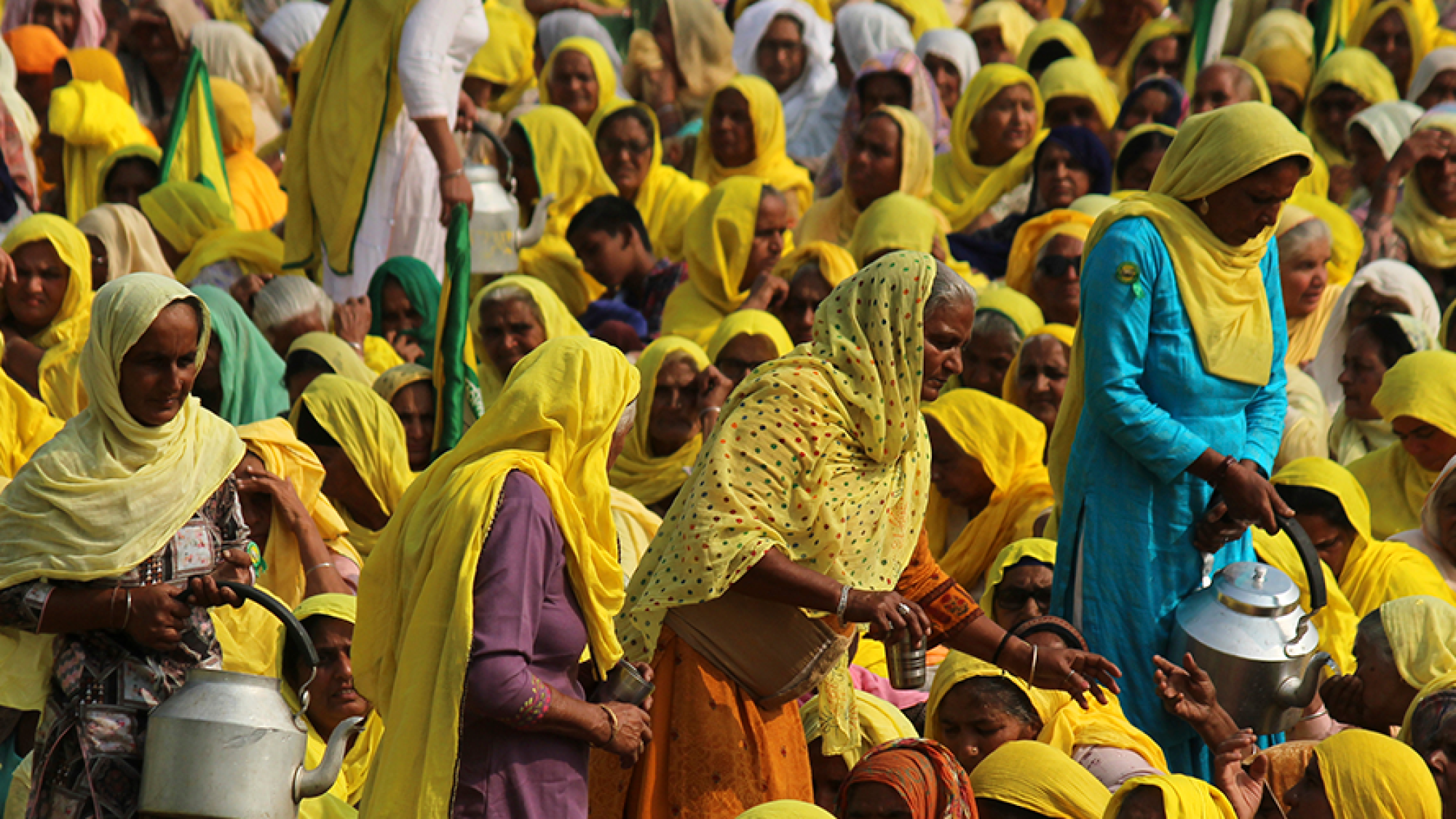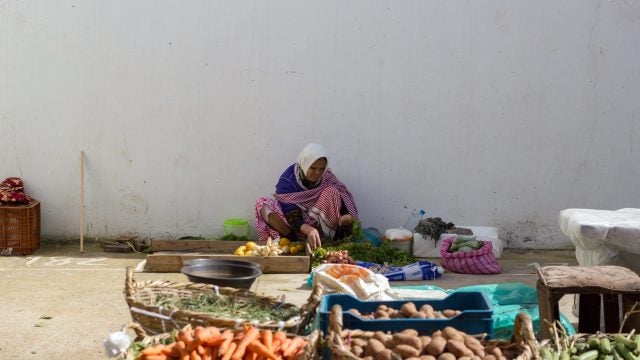
Title: How Feminist Foreign Policies Work to Enhance Gender Justice
This article examines whether the Global North uses feminist foreign policies (FFPs) to impose their values on the Global South and if such policies can enhance gender justice.[1] Using evidence from their new global data set of transitional justice mechanisms, the authors argue that countries with FFPs do not impose gender-attentive transitional justice on other countries. Rather, FFPs should be viewed both as an expression of a commitment to internal gender-attentive policies and a willingness to support and fund these policies abroad.
Since Sweden adopted a feminist foreign policy in 2014, Argentina, Canada, Chile, Colombia, France, Germany, Libya, Luxembourg, Mexico, the Netherlands, Scotland, Spain, and Slovenia have followed suit. The inclusion of both Latin American and African countries in this group demonstrates that feminist foreign policy (FFP) is no longer a phenomenon unique to the Global North. However, some still worry that such policies could reinforce dominant global hierarchies. Such worries are mistaken because FFPs do not impose policies on the Global South. Rather, the inter-state diffusion of feminist ideas and countries’ domestic political forces result in gender-attentive transitional justice (TJ). Transitional justice refers to efforts to reckon with past human rights violations and can include prosecutions of state officials, truth commissions, and reparations for victims, among other mechanisms.
While countries have increasingly adopted FFPs, there is no agreed-upon definition. Since FFPs are self-declared, they differ from country to country. However, UN Women tracks countries with FFPs and convenes an “FFP+” group of nineteen Member States who have either adopted an FFP or “committed to the advancement of gender equality through their multilateral engagement.” Canada, for example, takes a feminist approach primarily in relation to international assistance, focusing on increasing female participation in conflict prevention, ending impunity for sexual and gender-based violence (SGBV), and improving access to sexual and reproductive health services in humanitarian contexts. Canada also promises that its FFP will be “evidence-based and accountable” by committing to invest in “policy research, better data collection and evaluation for gender equality.” Germany, meanwhile, pledged to double its foreign aid geared toward gender equality. Colombia similarly intends to promote gender equality, female empowerment, and increased female political participation.
We define gender as the socially constructed roles, status, and identities of girls, women, boys, men, and gender-diverse people in society. We explore how countries with FFPs have incorporated gender into their TJ efforts or supported gender-attentive TJ in other countries using our data coded as part of the Transitional Justice Evaluation Team. Although from 1970 to 1990, TJ practices largely did not consider gender, attention to gender has since increased. We focus on two key TJ mechanisms: reparations policies and truth commissions. A truth commission (TC) is a formal, state-sanctioned, temporary body that investigates patterns of past human rights abuses. A gender-attentive TC may investigate a pattern of sexual and gender-based violence, consult representatives of women’s or LGBTQI+ advocacy groups, or recommend reforms to address gender-based violations. Reparations policies provide victims with compensation, restitution, and rehabilitation for human rights violations suffered. A gender-attentive reparations policy provides reparations to victims of sexual- and gender-based violations, including LGBTQI+ victims who were targeted due to their sexual or gender identity. TCs began to incorporate gender-based issues in the early 1990s, and the first gender-attentive reparations policies appeared in the late 1990s.
Domestic politics produce feminist foreign policies and gender-attentive transitional justice
FFP does not exist in a vacuum, often growing out of attention to gender in domestic politics. Countries with FFPs are more likely to have adopted internal gender-attentive TJ practices. Three of the eighty-six total reparations policies in our database offer reparations for crimes against LGBTQI+ victims in their own populations; all three were enacted by countries—Spain, the Netherlands, and Sweden—that have (or had in Sweden’s case) FFPs. In 2008, Spain amended its 2007 reparations program to compensate LGBTQI+ people who were wrongfully convicted and imprisoned during Franco’s dictatorial rule. Sweden adopted a policy in 2017 (after it had adopted its FFP) giving reparations for past forced sterilization of transgender individuals. The Netherlands adopted a similar policy in 2021. Canada, another state with an FFP, funded its own gender-attentive TJ. The Aboriginal Healing Foundation, an Aboriginal-run not-for-profit, operated from 1998 to 2014. The foundation funded community healing initiatives to address the physical and sexual abuse that had occurred at Indian Residential Schools in Canada from 1892 through the 1990s. The examples of Canada, Spain, the Netherlands, and Sweden reflect that FFPs often stem from a commitment to domestic gender justice.
Looking beyond the Global North, Colombia announced its FFP in 2023. Colombia’s FFP originates from demands in 2011 to include gender issues in then-President Juan Manuel Santos’ peace process. Colombia’s path-breaking gender-attentive reparations policy was complimented by multiple judicial decisions both of which raised awareness about gender issues in Colombian society and eventually contributed to the adoption of its FFP. The 2011 reparations program, which is still ongoing, uniquely focuses on gender issues compared to most reparation programs. Over 8,000 women have received reparations. The 2011 policy also mandated “a special program to guarantee women’s access to the procedures envisaged for [land] restitution, through preferential service windows, personnel trained in gender issues, measures to facilitate access by women’s organizations or networks to reparation processes, as well as areas of care for children and adolescents and the disabled that make up their family group.” It also mandated that the unit responsible for land restitution process applications from female heads of household first. Early judicial decisions by Colombian courts recognized the disproportionate impact of violence on women and called on the state to prevent and redress them.[2] Since 2011, domestic trials have also investigated paramilitary commanders for patterns of SGBV. In 2014, these investigations were extended to the threats, persecution, torture, enforced disappearances, displacement, and killings that have targeted the LGBTQI+ population.[3] Colombia’s TC was one of the most gender-attentive; it consulted with women and gender minority victims to understand their perspectives and needs prior to issuing its report. Furthermore, it was the only TC that addressed sexual violence, gender discrimination, and protection of the LGBTQI+ population in its recommendations. As such, Colombia’s gender-attentive TJ predates its FFP by over a decade. Colombia’s TJ efforts highlight how FFPs developed from domestic feminist TJ movements across the globe.
Regional diffusion also spreads gender-attentive transitional justice
Gender-attentive TJ also comes from regional diffusion. South Africa’s 1998 Truth and Reconciliation Commission (TRC) created one of the first gender-attentive reparations policies as part of its truth commission. South Africa’s groundbreaking TRC sparked regional diffusion, as other Sub-Saharan and even North African countries adopted South Africa’s model. Ghana, Morocco, and Sierra Leone all published TC final reports containing gender-attentive reparations policies in 2004, the year after South Africa passed its reparations policy into law. Morocco’s 2004 Equity and Reconciliation Commission recognized that women are “Victims of Twofold Violence.” They suffer both from violence targeting themselves and violence against their husbands, which renders women the sole household provider. Morocco’s collective reparations projects, including social programs and centers for women established in “victim regions” identified by the TC, later received funding from several foreign sources with the European Union being by far the largest donor at €11 million.[4] The United Nations Development Fund for Women (UNIFEM) also provided “technical assistance on including gender as a crosscutting issue in the community reparations program.”[5] Morocco’s TJ efforts inspired Tunisia’s gender-attentive 2019 Truth and Dignity Commission. Tunisian commissioners and staff met with the former commissioners of the Moroccan TC and subsequently created a special committee for women.[6] Tunisia, Morocco, and South Africa’s efforts reflect how gender-attentive TJ often spreads through regional diffusion.
Foreign donors are drawn to support policies that are gender-attentive relative to those that are not. 24 percent of gender-attentive reparations policies received foreign funding, compared to only 13 percent of non-gender-attentive reparations policies. We also find that 33 percent of gender-attentive TCs receive foreign funding, while only 11 percent of non-gender-attentive TCs do. Such global financial support reflects how foreign actors only support existing TJ and do not compel states to adopt gender-conscious TJ. Rather, national TJ develops through regional diffusion or due to domestic sociopolitical forces.
Conclusion and policy recommendations
We find that gender-attentive transitional justice mechanisms are either proposed by the government or civil society within the country where they are implemented or diffused from regional neighbors. FFPs should be viewed as both a commitment to internal gender-attentive policies and a willingness to support and fund these policies abroad.
FFPs are a promising new development in diplomacy and international relations. Not every country can or should adopt an FFP. A sincere commitment to gender equality must begin at home, including, where appropriate, the adoption of domestic TJ policies that are gender-attentive. Countries anywhere in the world that have already committed to gender equality domestically should consider incorporating these values into their foreign policies. One key way to implement an FFP is to financially and logistically support gender-attentive TJ abroad. Through such support, countries already embracing gender-attentive policies domestically will be more effective and have more credibility when they can promote feminist policies abroad.
…
Kathryn A. Sikkink is the Ryan Family Professor of Human Rights Policy at the Harvard Kennedy School of Government.
Helen Clapp is the Research Coordinator of the Transitional Justice Evaluation Team (TJET) at the Harvard Kennedy School.
[1] We wish to thank Daniel Marin Lopez, who helped code the gender-attentive truth commissions in our data set, and other members of our TJET team: Dara Cohen, Geoff Dancy, Averell Schmidt, and Oskar Timo Thoms.
[2] Inguanzo, Isabel, and Angelica Rodriguez. 2023. ‘Analysis of the Colombian Constitutional Court’s Transformative Approach to Conflict-Related Sexual Violence’. Social & Legal Studies.
[3] Garcés-Amaya, Diana Paola. 2023. ‘Of silences and openings: recognition of the victimizations of LGBTQI social sectors in recent models of Transitional Justice in Colombia’. Journal of Social Studies (83): 23–40.
[4] Arthur, Paige. “Sending the Wrong Signal: International Assistance and the Decline of Civil Society Action on Transitional Justice in Morocco.” In Transitional Justice, International Assistance, and Civil Society, 86-113. Cambridge: Cambridge University Press, 2018.
[5] Ibid.
[6] Anonymous interview with Tunisian consultant to the Moroccan TC, April 28, 2023.
Image Credit: The Global Observatory
Recommended Articles

This paper examines the interrelated crises facing the Maghreb region: water scarcity and gender inequality. It describes the current approach towards addressing water scarcity and how incorporating women’s voices into…

This article compares U.S. and Chinese approaches to artificial intelligence (AI) exports in Africa and examines how these disparate approaches have produced both downstream benefits and challenges for the region.

On May 20, 2025, the World Health Assembly unanimously adopted the World Health Organization (WHO) Pandemic Agreement, an international treaty designed to strengthen pandemic prevention, preparedness, and…